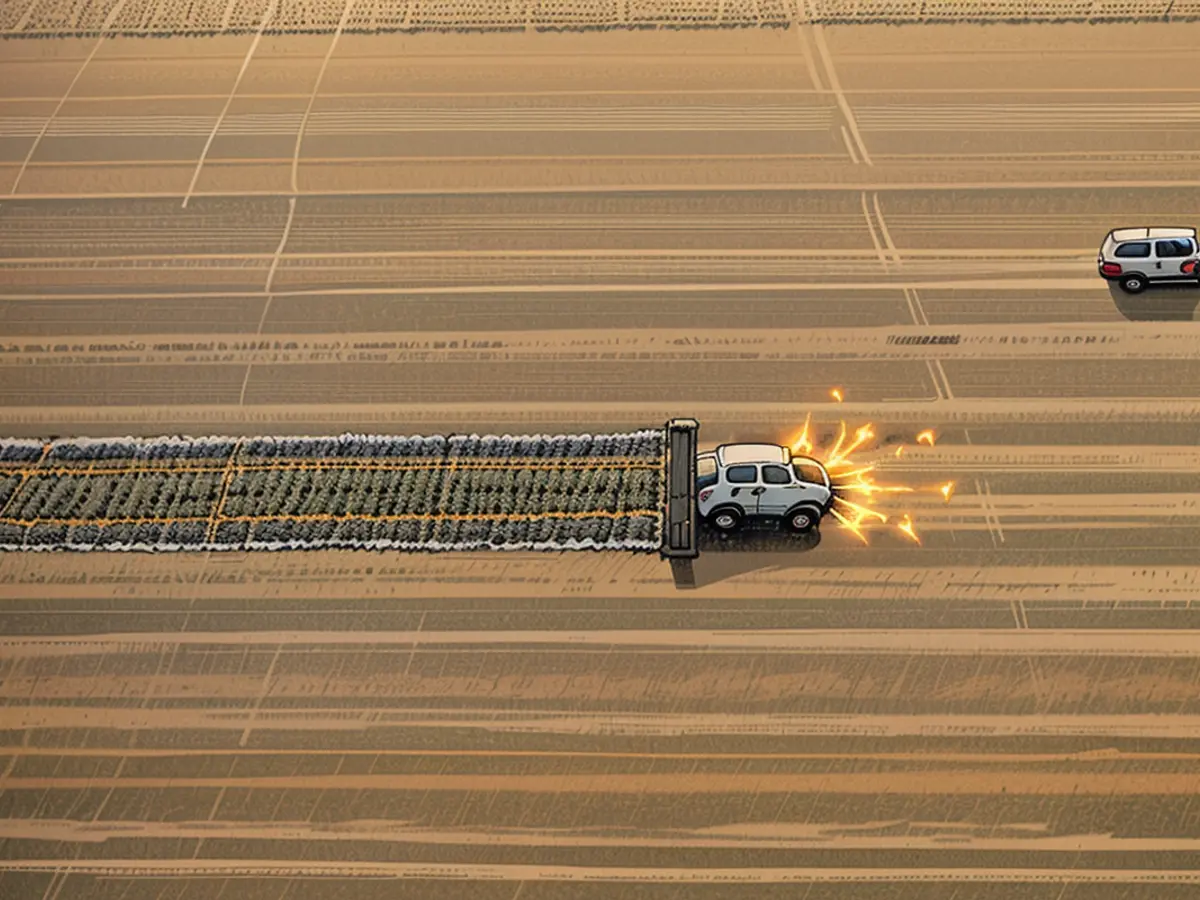- Dismal Wheat Harvest Over Three Decades in North Rhine-Westphalia's Winter Season
Hard Times for Farmers in North Rhine-Westphalia: Rain Wreaks Havoc on Crop Yields
It's been a tough year for farmers in North Rhine-Westphalia, with flood-like rainfall causing havoc on crop yields. Statistics show that rainfall between August 2023 and July 2024 was about 50% more than the average, leading to water-logged fields that were inaccessible for tractors during planting time. Sadly, many plants drowned and didn't survive the winter floods.
The average yield of winter wheat, the main cereal crop, dropped to 7.1 tonnes per hectare, a significant decline compared to the past 30 years. "While the excessive rain has been beneficial for groundwater regeneration and soil moisturization, it has presented numerous challenges to agriculture throughout the year," said North Rhine-Westphalia's Minister of Agriculture, Silke Gorißen (CDU).
Grain Prices Likely to Remain Stable
Despite the poor harvest, consumers can expect stable grain prices. According to the Chamber of Agriculture, the global grain market is well-supplied, which keeps prices low. Major grain-exporting countries such as Russia, Ukraine, North and South America, and Australia are currently not facing any significant harvest issues, so their harvests have a significant impact on the global market.
The grain harvest in North Rhine-Westphalia is nearly over, with the state's statistical office IT.NRW reporting that 531,400 hectares of grain were grown in 2024, with 210,400 hectares of wheat, 95% of which was winter wheat. However, the area under winter wheat is 19% lower this year than in 2023, and yields are 15% lower than the average from the past five years. The yields for rye, barley, and triticale are also below average.
Summer Grains Performed Better
Summer grains, however, managed to yield above-average results. The wet conditions were ideal for planting summer grains instead of winter wheat, which couldn't be sown on many fields due to wetness. Despite the boost in summer grain yields, their share in the overall harvest is very small.
Difficulties in Potato and Strawberry Harvests
Wet weather also impacted the potato and strawberry harvests negatively. The Chamber of Agriculture reported poor planting conditions and high disease pressure from late blight, leading to significant potato crop losses. Strawberry yields, too, are at a record low in the past ten years, with IT.NRW reporting lesser than usual yields. On the positive side, maize, sugar beet, and late potatoes are expected to yield better than expected, the Ministry of Agriculture announced.
Extreme weather events have become increasingly common due to climate change, adding to the challenges faced by farmers. While this year's harvest was too wet, previous years were often too dry and hot for the agriculture operations.
The farmers in North Rhine-Westphalia are now faced with the challenge of managing their foodstuffs storage due to the excess crop yield failure. Despite the poor harvest, the abundance of foodstuffs from other major grain-exporting countries might contribute to maintaining stable grain prices globally.








